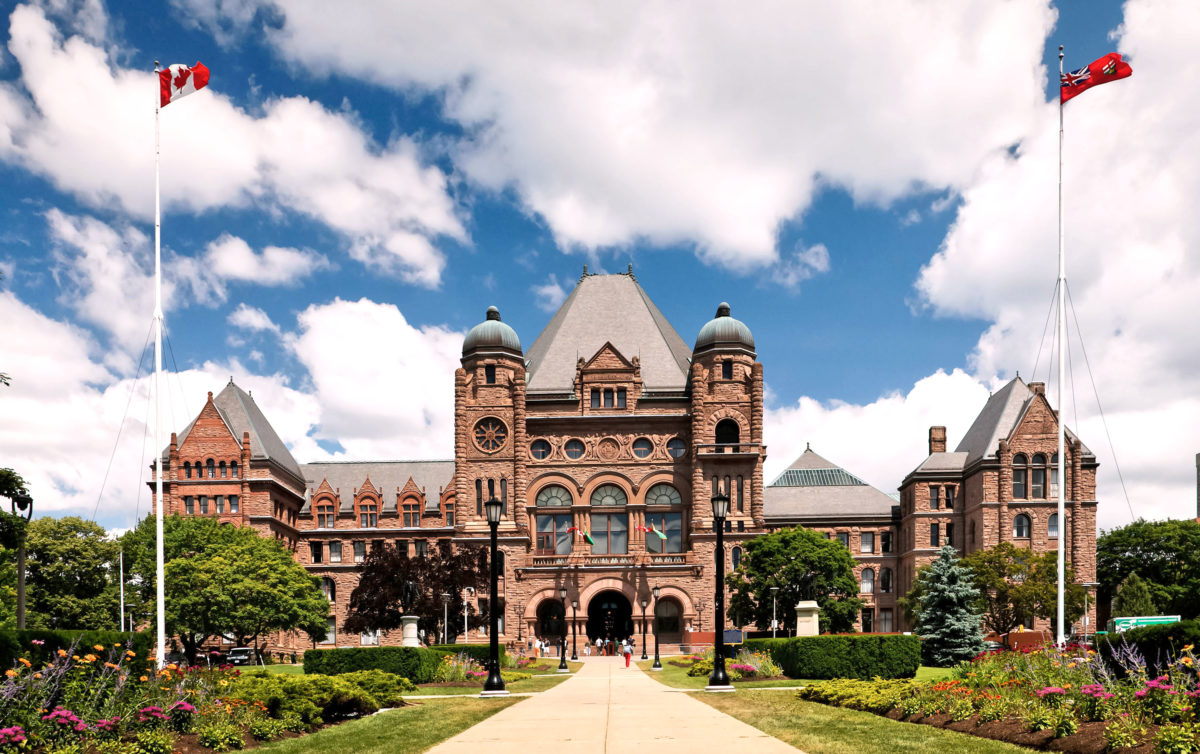Alisha Tucker was scrolling through Facebook when she discovered the new changes to the Ontario Student Assistance Program.
Tucker, a St. Thomas University student from Brampton, Ont., said she was frustrated to hear about the changes.
“The federal [student loans] already starts charging interest as soon as you graduate so it’s mainly just the provincial, but that’s still a lot of money coming from the provincial [student loans] after four years,” said Tucker.
“So, knowing that there’s no more six-month grace period is kind of frustrating because now it’s going to be that much more interest tacked on.”
On Jan. 17, the Doug Ford government announced new changes to its student loan program, OSAP. Under the new changes, university tuition for Canadian students attending post-secondary in the province will decrease 10 per cent. But the amount of available grant money to students is decreasing along with the amount a family makes to qualify for those grants.
Students will no longer be able to claim they’re independent from their parents until they’ve been living on their own for six years instead of the previous four.
Brianna Workman, president of the St. Thomas University Students’ Union, is from Ontario. She’s concerned the “non-essential, non-tuition fees” will leave universities short-changed.

“[The Ontario government] announced very clearly, they said, ‘Yeah, we’re cutting tuition. And we’re not providing institutions with the support to make up that revenue.’ And so, they kind of just said to the universities and colleges, ‘Like figure it out, you’re going to lose 10 per cent,’” said Workman.
Ontario was the first province to announce the free tuition program and the sliding scale for middle class families in 2016, with New Brunswick adopting free tuition the same year. A year later, a sliding scale was introduced for middle class families. Workman said there is some concern about the New Brunswick government following in Ontario’s footsteps again.
“It’s a particular concern I think in New Brunswick, where we do have a Progressive Conservative minority government which is a party that spoke very, very often throughout their campaign and the fall, about reviewing the free tuition and program tuition relief for the middle class,” said Workman.
Workman said the party has talked about reviewing the system, but there is some interest in going back to the tax credit system and eliminating free tuition and tuition relief for the middle class all together.
She said the New Brunswick Student Alliance participated in the first stages of the review and advocated against the changes. They also worked with student alliances from Nova Scotia and Prince Edward Island to create a joint statement advocating the changes not be made.
Workman said she understands that students want to save money by opting out of paying “non-essential” fees, but believes it will negatively affect campus life.
“I won’t blame students that want to save that money and do other things with it. But I think the effects that it will have [on] campus life and just your social extracurriculars and the supports you have as a student, is going to be so detrimental and it’s really scary,” she said.

Adam Brown, the chair of the Canadian Alliance of Student Associations, said while they’re waiting on more details, he agreed the “voluntary student unionism” program, meaning students can choose to pay for certain fees, could have a negative impact on student unions.
“That could have devastating impact for student life in terms of the services that they receive, things like transit passes or health and dental plans,” he said.
Brown thinks the lack of a grace period will also be a struggle for students post-graduation.
“What we are aware of, is that it takes on average, students about five months post-graduation to find a job and so if they have to start paying interest right [away], while they don’t have a job yet it’s going to make things financially more difficult for them,” he said.
Brown said CASA is working to get the federal government to introduce a six-month grace period on student loan interest to help students.
“We believe that that sets students up for more financial success and then students are still paying back the loan, we wanted to make sure that the students are able to find jobs after they graduate so that they can start paying [them],” he said.
The changes to student fees won’t impact Tucker, but the lack of a grace period when she graduates will affect her.
“Now there’s just more of a pressure to really jump in [to the workforce] and hopefully find something that’s good enough wage to pay [for these loans].”

